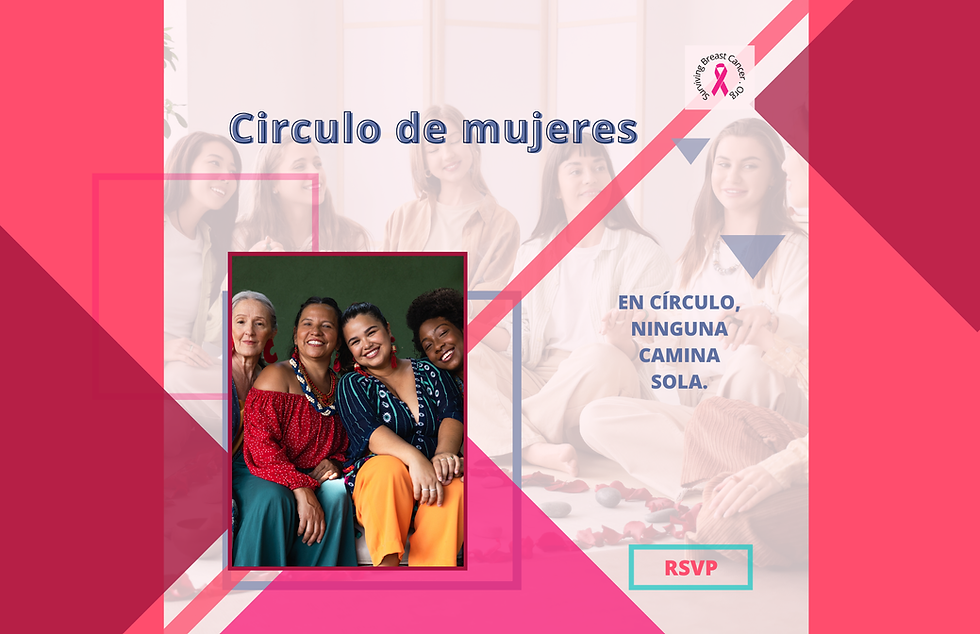10 Common Myths About Cancer
- Surviving Breast Cancer

- Jul 19, 2023
- 4 min read
Updated: Oct 10, 2025
By Rafia Nasir

Cancer is a complex and often misunderstood disease that affects millions of people across the globe. Unfortunately, misconceptions and myths about cancer can spread misinformation, fear, and confusion. Let’s dive into 10 common myths surrounding cancer and unravel the truth behind them.
Myth 1: Cancer Always Leads to Death
One of the most common myths about cancer is that it is always fatal. It is true that cancer is a serious and potentially life-threatening disease. However, advances in early detection, treatment options, and supportive care have significantly improved survival rates. Many people are successfully treated and live full lives after being diagnosed with cancer.
Myth 2: Superfoods or Specific Diets Can Cure Cancer
Although maintaining a healthy diet is important for overall health, there is no specific diet or food that can cure cancer. Some foods have beneficial properties or antioxidants that may support overall health, but they cannot replace medical treatment for cancer. It is very important to rely on evidence-based medical treatment provided by healthcare professionals.
Myth 3: Only Old People Get Cancer
Cancer can affect people of all ages, including children and young adults. Although the risk of developing cancer increases with age, it is important to know that cancer can occur at any stage of life. The incidence of some types of cancer, such as leukemia and sarcoma, is higher in younger people.
Myth 4: Mammograms Cause Breast Cancer
Mammograms, the X-ray imaging used to screen for breast cancer, do not cause breast cancer. The benefits of regular mammograms in detecting breast cancer early and increasing survival rates far outweigh any potential risks associated with the procedure.
Myth 5: Hair Color Causes Cancer
There is no conclusive evidence linking the use of hair dyes to an increased risk of cancer. Although some studies have suggested a possible association, the overall risk is still considered minimal.
Note: Some hair products such as straightening or smoothing treatments may contain formaldehyde or formaldehyde-releasing preservatives (DMDM hydantoin, imidazolidinyl urea, or quaternium-15, which can release formaldehyde over time). Prolonged inhalation or high levels of formaldehyde exposure have been associated with an increased risk of certain cancers, including nasopharyngeal cancer and leukemia. Regulatory agencies enforce restrictions on the concentration of formaldehyde in everyday consumer products to ensure safety. However, individuals with sensitivities or concerns may opt for alternatives that are formaldehyde free. It is advisable to carefully examine ingredient labels before using hair products and to follow safety instructions provided by manufacturers when using hair dyes.
Myth 6: Cancer is Only Caused by Genetics
While genetic factors may contribute to an individual’s risk of cancer, lifestyle choices and environmental exposures also play a role. Tobacco use, unhealthy diet, physical inactivity, exposure to carcinogens, and other lifestyle factors can greatly increase the risk of cancer, even in individuals without a family history of the disease.
Myth 7: Alternative Therapies Can Cure Cancer
Alternative therapies and treatments can provide comfort and relief from symptoms, but should not be considered a cure for cancer. Effective management and treatment of cancer requires reliance on evidence-based medical treatments provided by healthcare professionals.
Myth 8: Cancer is Contagious
Contrary to popular belief, cancer is not contagious. It cannot be transmitted from person to person like an infectious disease. Cancer is caused by genetic mutations or other factors in a person’s own cells, and is not caused by contact with or proximity to someone with the disease.
Myth 9: Biopsies Cause Cancer to Spread
Biopsies, which involve removing a small sample of tissue for examination, do not cause cancer to spread. A biopsy is essential to accurately diagnose cancer, determine its characteristics, and guide appropriate treatment decisions.
Myth 10: Sunscreen Causes Vitamin D Deficiency
Sunscreens are an essential tool for protecting the skin from harmful UV rays, reducing the risk of skin damage and skin cancer. But some people believe it can lead to vitamin D deficiency. Sunscreen does not completely block the skin’s ability to produce vitamin D. Even when wearing sunscreen, the skin can still absorb some UV radiation, allowing for adequate vitamin D synthesis. Additionally, there are other sources of vitamin D, such as certain foods and vitamin D supplements, which can help maintain optimal levels.
Remember to seek reliable sources and consult with healthcare professionals for accurate information about cancer. It is important to dispel myths about cancer to promote understanding and make informed decisions. Feel free to share any other myths or questions you may have, and we’ll be glad to address them. Together, we can dispel misconceptions and promote awareness.
Learn more:
On the Breast Cancer Conversations Podcast:
From the same author:
Author bio:

Rafia Nasir holds a Pharm-D degree and has extensive clinical and oncology experience. She worked for four years as a clinical pharmacist in medical oncology at an ISO-certified military hospital in Pakistan. Her experience as a clinical pharmacist helps her understand cancer treatment and the importance of individualized care.
She currently works as a medical writer covering cancer treatment and research. By leveraging her clinical experience, she is able to translate complex medical information into patient-friendly language to help patients better understand their disease and treatment options. Through her work, she aims to bridge the gap between medical expertise and patient understanding.
With a strong focus on patient education, she is committed to helping patients and their caregivers tackle cancer treatment complexities with confidence and hope.
SurvivingBreastCancer.org Resources & Support:










